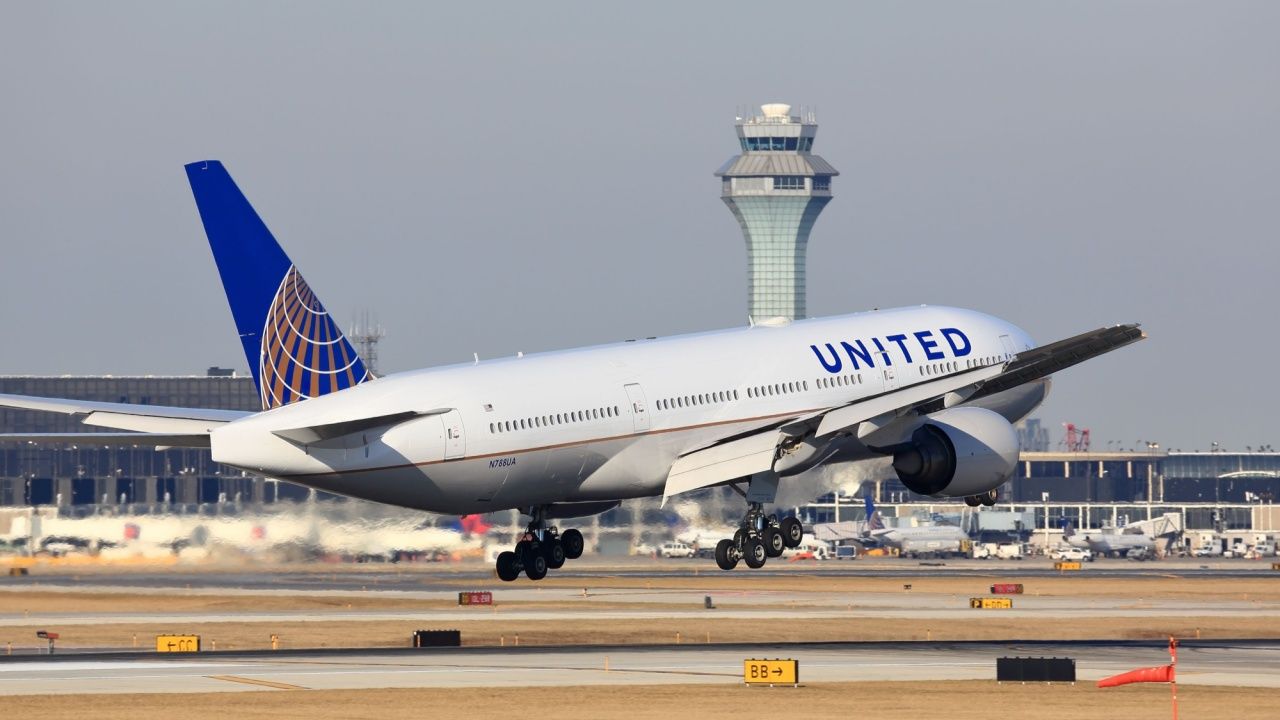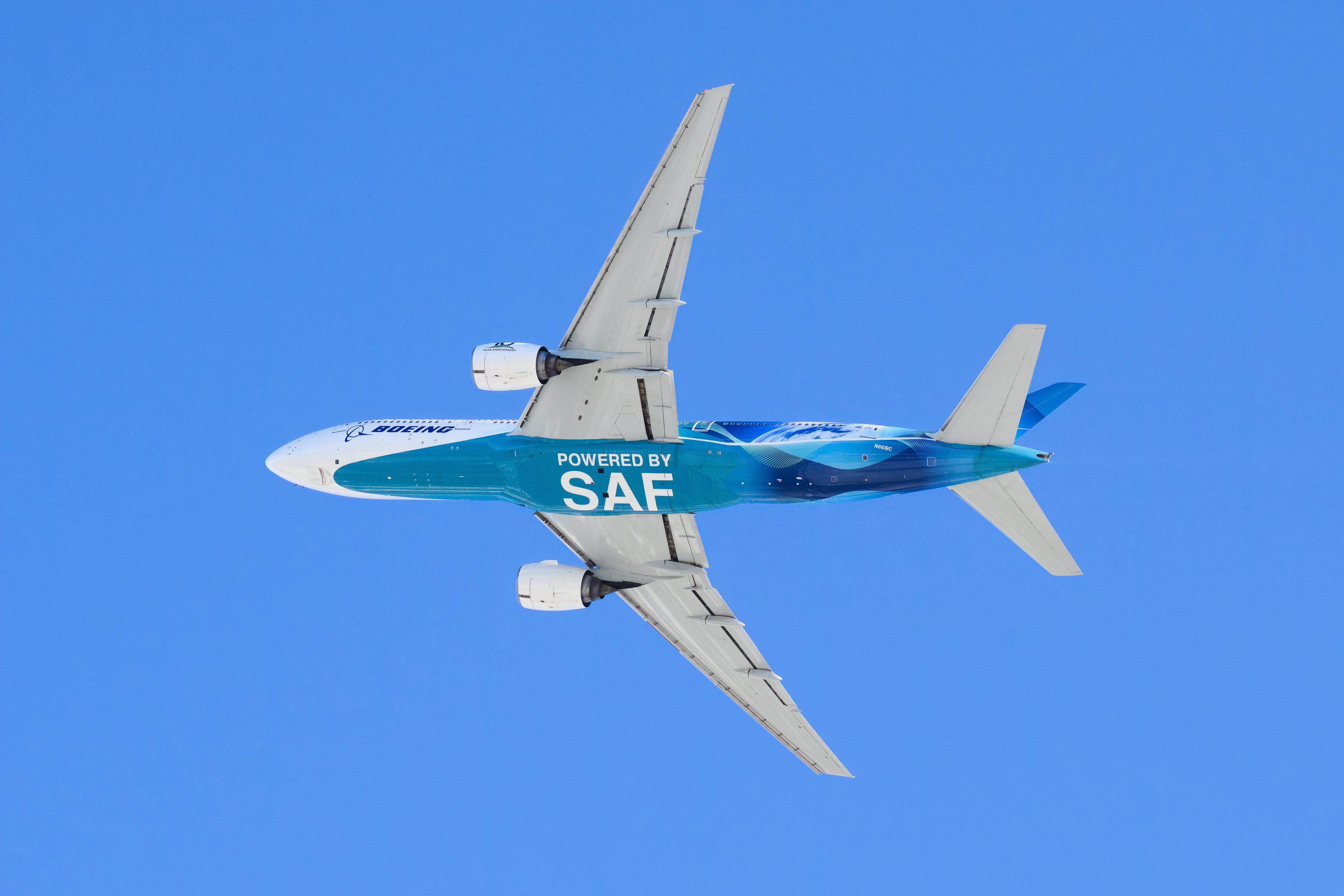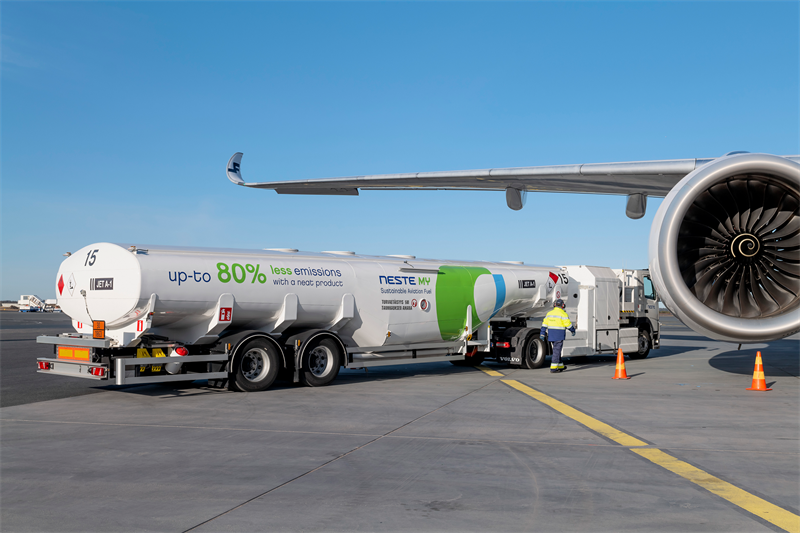Summary
- United Airlines leads in SAF purchase, aiming for net zero emissions by 2050.
- Committed to buying up to 1 million gallons of Neste MY Sustainable Aviation Fuel at O’Hare through 2024.
- Investing in new aircraft, SAF, and low-carbon technology to reach net zero emissions goals.
Designating an airline as the leader in anything usually creates a hue and cry, but sometimes the numbers don’t lie. That’s why United Airlines can rightly claim the title of the US leader in the purchase and use of sustainable aviation fuel (SAF).
Taking leadership of net zero
Today, it added to its credentials by committing to purchase SAF at Chicago O’Hare International Airport, the fifth airport where the airline has purchased the alternative fuel. United Airlines (United) was the first airline to commit to reaching net zero greenhouse gas emissions by 2050 without relying on voluntary carbon offsets.
Photo: Greg K__ca l Shutterstock
In 2023, United purchased more sustainable aviation fuel than any other US airline and remains the industry leader in SAF usage. On Wednesday, United announced it is the first airline to purchase SAF for use at Chicago O’Hare International (ORD), adding to its SAF purchases at airports in Los Angeles, San Francisco, London and Amsterdam.
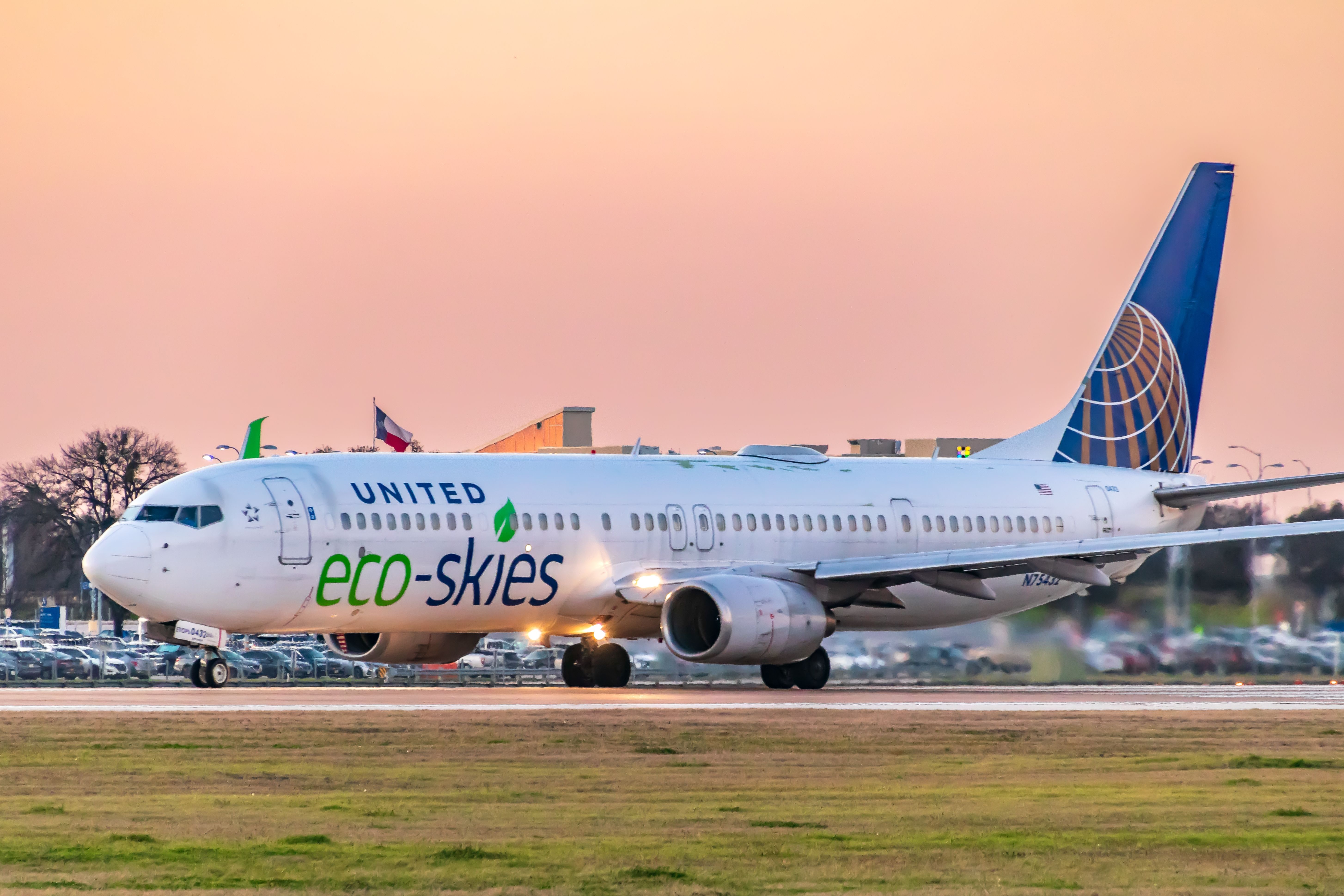
Related
US Airlines Unite With Farmers In Effort To Subsidize Sustainable Aviation Fuel Made From Corn
SAF production has significantly increased over the last two years, but officials say plenty more must be supplied to reach industry goals.
The carrier has committed to purchasing up to 1 million gallons of Neste MY Sustainable Aviation Fuel at O’Hare through the end of 2024, with the first supply arriving in August. United Airlines President Brett Hart made the announcement at O’Hare and said that the SAF agreement happened when innovation, leadership and policy came together, adding:
“While the market for SAF is in its infancy, there is a huge opportunity today for airlines and policymakers to work together to support its continued growth.”
New-generation aircraft are key
United is adding hundreds of new, fuel-efficient aircraft, using SAF, and investing in other low-carbon onboard products and alternate propulsion technologies to reach its net zero goals. According to fleet data from ch-aviation, United has a fleet of 965 aircraft, with close to 700 more on order from Airbus and Boeing.
Photo: Ian Dewar Photography | Shutterstock
The data shows that United has 749 narrowbody jets, including 81 Airbus A319-100s, 86 A320-200s, and 14 A321neos. From Boeing, it has single-aisle aircraft, including 40 737-700s, 98 737 MAX 8s, 141 737-800s, 80 737 MAX 9s, 12 737-900s, 136 737-900ERs, 40 757-200s and 21 757-300s.
The widebody fleet of 220 jets is currently an all-Boeing affair, with 37 767-300ERs, 16 767-400ERs, 19 777-200s, 55 777-200ERs, 22 777-300ERs, 21 787-10s, 12 787-8s and 38 787-9s. The ch-aviation data shows United has widebody orders for 150 Boeing 787-9s and 45 Airbus A350-900s.
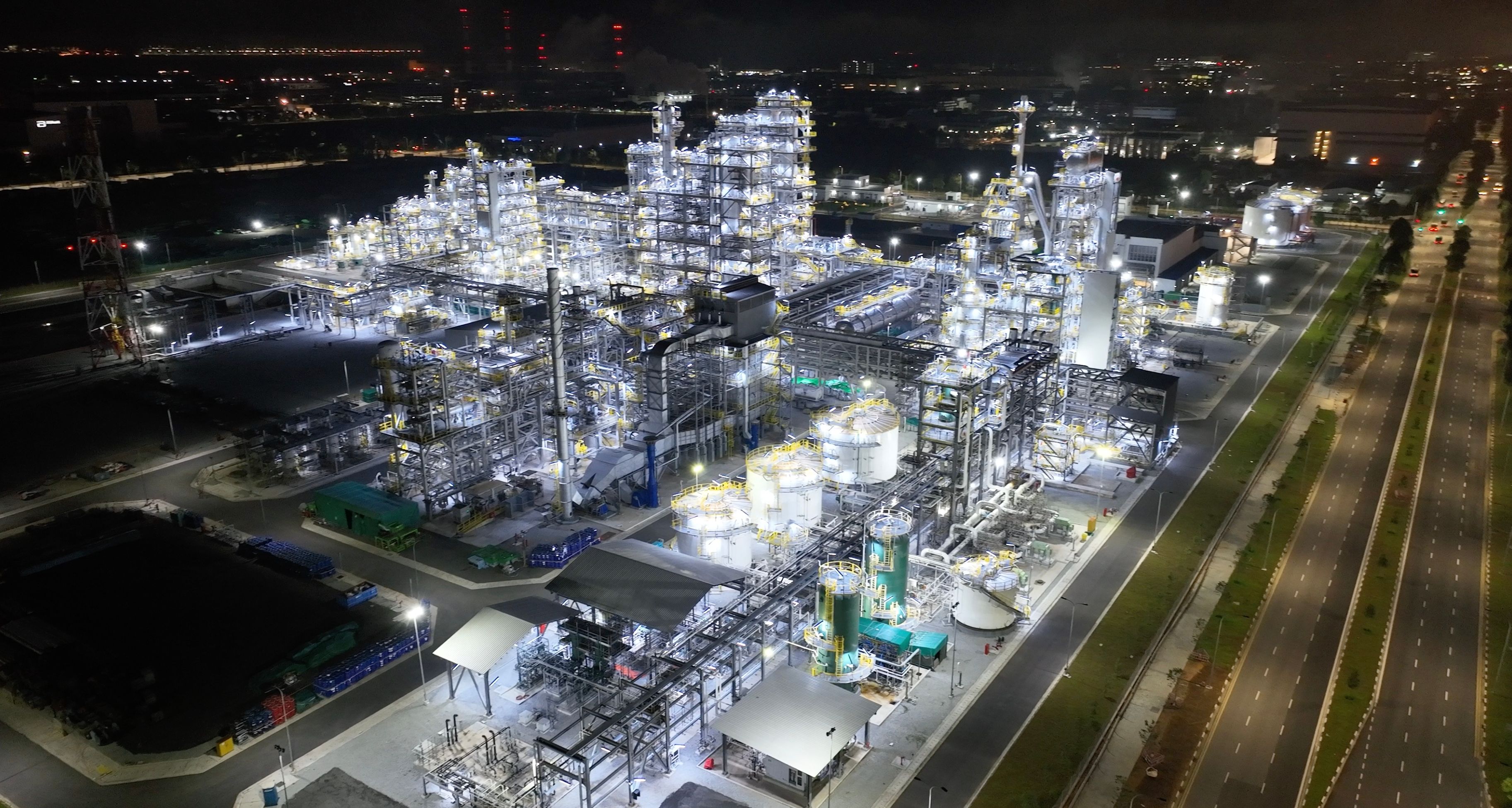
Related
Neste Opens Refinery And Builds SAF Supply Chain To Singapore Changi Airport
Neste’s Singapore refinery now has the capacity to produce one million tons of sustainable aviation fuel annually and get it delivered to airlines
The development of a SAF supply chain requires significant investments, and gaining support from legislators and investors is a key element of United’s leadership role. The airline helped push for the successful adoption of a US federal SAF Blender’s Tax Credit, Department of Transportation grants to promote SAF usage and incentives for hydrogen production and carbon capture.
Photo: Airbus
United also helped found the SAF Coalition, a consortium of more than 40 airlines and aircraft operators, agricultural enterprises, aircraft and aircraft equipment manufacturers, airports, technology developers, labor unions and biofuel producers. United operates the most comprehensive global route network among North American carriers and is the world’s largest airline as measured by available seat miles.
The airline recognizes that solving the climate change challenges is beyond one airline or industry, so it has rallied these groups and the business community to scale more SAF production. In 2023, United launched the UAV Sustainable Flight Fund, an investment vehicle focused on decarbonizing air travel. United and its 21 corporate partners have already committed more than $200 million to the fund.


